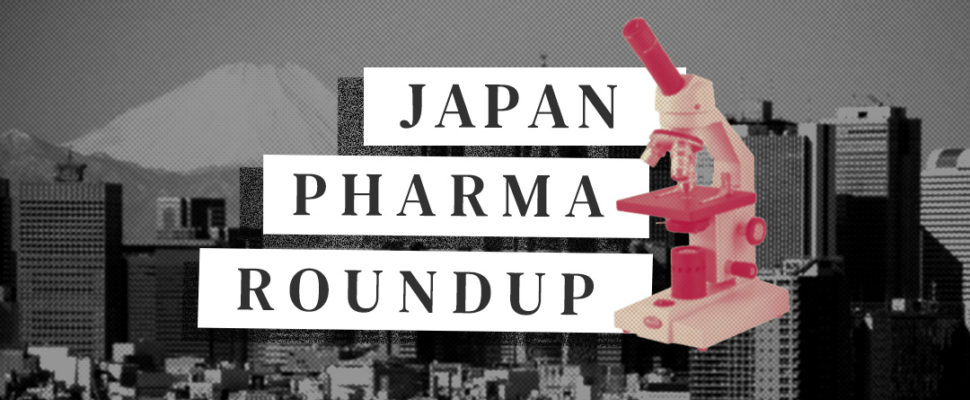Some of the biggest stories coming out of Japanese pharma, including Takeda’s USD 2.2 billion Alzheimer’s deal with AC Immune and its plans to restructure; the continuing probe into deaths linked to a Kobayashi Pharmaceutical supplement; Kyowa Kirin’s acquisition of Orchard Therapeutics, and Shionogi’s buy up of Maze Therapeutics’ Pompe disease programme.
Takeda Pharmaceuticals reaches $2bn deal to develop Alzheimer’s vaccine (Financial Times)
Japan’s Takeda Pharmaceuticals has reached a deal worth up to $2.2bn to develop an Alzheimer’s vaccine made by Swiss start-up AC Immune, as drug companies race to invest in potentially lucrative new treatments for the disease. The vaccine is one of a wave of new drugs heading for the market, including lecanemab, developed by Japanese company Eisai, which received US regulatory approval last year.
The vaccine is one of a wave of new drugs heading for the market, including lecanemab, developed by Japanese company Eisai, which received US regulatory approval last year. In the Takeda deal, AC Immune will receive an upfront payment of $100mn, rising to $2.1bn if milestones are reached, as well as more than 10 per cent in royalties from any worldwide sales.
Japan’s Takeda Pharma to restructure after annual profit slump (Reuters)
Japan’s Shionogi says COVID treatment did not meet endpoint in late-stage trial (Reuters)
Cause of Kobayashi Pharma health scare still unclear as probe continues (Japan Times)
Puberulic acid, a natural compound derived from blue mold, has been detected in Kobayashi Pharmaceutical’s supplements containing beni kо̄ji red fermented rice, but the substance’s effect on the human body is still unclear. A total of five people who took Kobayashi Pharmaceutical’s beni kо̄ji supplements have been confirmed dead as of Wednesday, while many others were hospitalized.
The government is now investigating the cause of the health issues. While there is a possibility that puberulic acid has led to the health problems, some experts say that it will take several months to complete related surveys.
Kyowa goes big on Libmeldy with $477m Orchard buy (Bio Process International)
As Libmeldy awaits US FDA approval, Kyowa Kirin acquires Orchard Therapeutics with an aim of maximizing the value of the gene therapy.
Under the terms of the deal, Japan-based pharmaceutical firm, Kyowa will pay $477 million to acquire Orchard. According to Kyowa, the decision to acquire Orchard is spurred by the ongoing and future launches of gene therapy Libmeldy (atidarsagene autotemcel), which is used to treat children with metachromatic leukodystrophy (MLD).
Eisai predicts sharp Leqembi sales increase as launch efforts begin to bear fruit (Fierce Pharma)
Reflecting on Eisai’s Alzheimer’s disease development journey—from Aricept’s U.S. launch in 1997 to Leqembi nearly a quarter century later—the company’s CEO Haruo Naito on Wednesday offered these words from Japanese poet Takamura Kotaro’s famous work Dōtei: “There is no way before us, but there will be a way after us.”
Naito waxed poetic as Eisai laid out an ambitious goal to hit 56.5 billion yen (roughly $364 million) in global Leqembi sales for the 2024 fiscal year, which will wrap up next March.
After FTC stalled Sanofi deal, Shionogi secures Maze’s Pompe disease drug for $150M (Fierce Pharma)
It appears Sanofi’s loss is Shionogi’s gain. Five months after the Federal Trade Commission (FTC) scuttled Sanofi’s attempt to acquire Maze Therapeutics’ Pompe disease program, Japan’s Shionogi has scooped up the asset.
Maze and Sanofi unveiled their own licensing deal for the program, MZE001, back in May 2023. The French pharma agreed to pay $150 million upfront along with the potential for $605 million in milestones for worldwide rights to a drug candidate that could treat Pompe by stopping the buildup of glycogen.
Japan’s GHIT invests $10.8 M to develop new drugs for malaria & NTDs (BioSpectrum Asia)
The Global Health Innovative Technology (GHIT) Fund has announced a total investment of approximately JPY 1.64 billion ($10.8 million) in four projects for the development of new drugs for malaria and neglected tropical diseases (NTDs).
The GHIT Fund will invest approximately JPY 444 million ($2.9 million) in two malaria projects: the development of malaria chemoprevention drug through a partnership among Shionogi & Co., Nagasaki University, National Institute of Infectious Diseases, and Medicines for Malaria Venture (MMV), and therapeutic drug development led by Eisai Co., the Scripps Research Institute, and International Centre for Genetic Engineering and Biotechnology (ICGEB).



